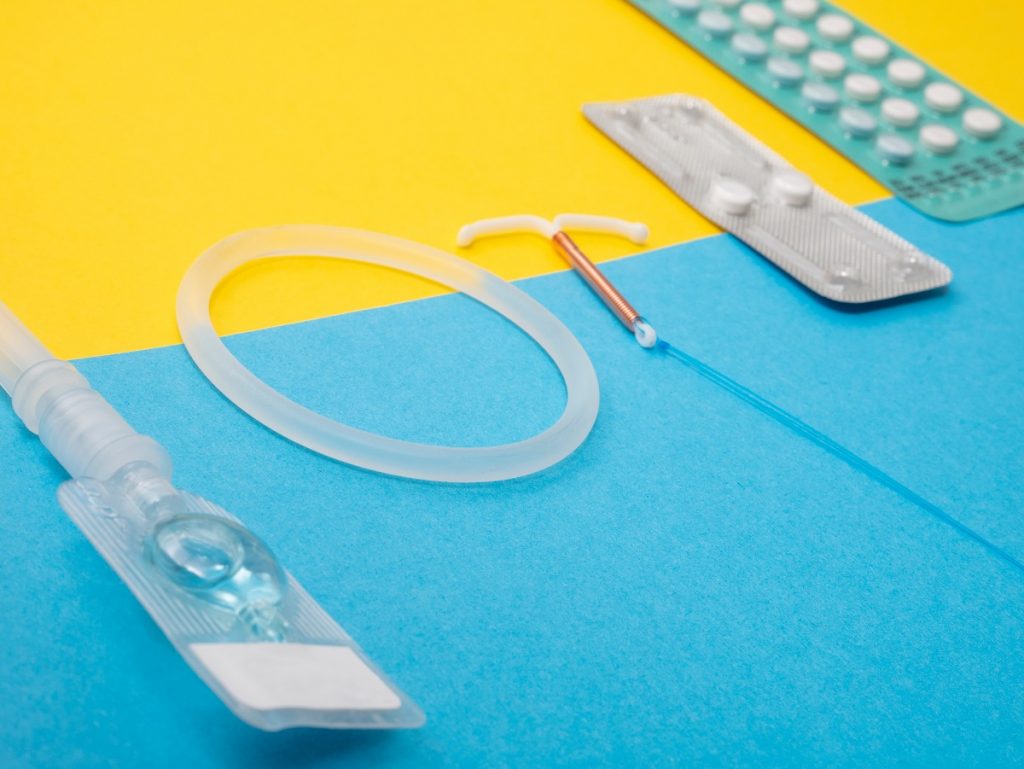Having two periods in one month can be particularly vexing. And yet, it may be your body signalling important changes you need to pay attention to. There are a myriad reasons your period might show up twice in one month. We’ll cover some of the major ones, but it’s best to see your doc if this is an unusual appearance. Psst: You can also book a chat on the Zoie Health app!
Before we get into a few other causes, let’s check off a normal period. First, calculate your periods cycle. If you’re using a period tracking app, this part is easy and you’ll quickly be able to see how many days lapse between your period. If your cycle is on the shorter side – 21 days long, as opposed to 28, for example, you’ll notice that some months have you experiencing two periods in one month. That’s annoying, sure, but totally normal.
Now, if this has never happened to you before, or if your interval is less than 21 days long, read along for a possible cause. Warning: there are many, and while we’re dedicated to giving you as many possible explanations as possible, you should always defer to your doctor for advice and treatment. PS: Zoie app has doctors available at a fraction of the cost!

Reason #1: You skipped birth control
This happens because when you’re on birth control, your body is maintaining a steady level of synthetic hormones to regulate your cycle. If you stop taking those, your hormone levels will change and that sudden shift gives rise to a period – unexpected by you.
Symptoms: Menstrual cramps, breast pain, and other PMS symptoms that hit, followed by a period. When you check your pack of pills, it’s likely you haven’t taken them for a while. Even skipping just three pills in a row will open the door for breakthrough bleeding.
What to do
Relax! It’s just your body doing it’s thing. Start a new pack of pills right away. Since contraception takes eight hours to start working, use back-up contraception like condoms for seven days, to be safe.
Reason #2: You took emergency contraception
Emergency contraception, or the Morning After Pill, contains a high dose of levonorgestrel, which creates an inhospitable environment for prospective sperm and prevents ovulation (an egg being released).
Symptoms: you may feel a headache, tummy ache or nausea after taking the MAP. It could also bring your period on earlier, later, or make it more painful than usual.
What to do
Since you’ve already taken the MAP, pat yourself on the back for taking charge of your future and taking good care of yourself. Ride out this period with chocolate, pizza and painkillers.
Reason #3: You’re super stressed out
And before you lament that you’re “not that stressed”, hear this: moving house, changing jobs, break-ups and medical problems are all significant stressors that can and will upend normal bodily functions. The proof? A 2018 study of female students found that stress significantly impacted their menstrual cycles. Among students with a menstrual problem, 39% of them had high perceived stress.
Symptoms: Any stress symptoms may include trouble sleeping, eating (or eating more than usual), and changes in your regular lifestyle, like not going for a run the way you used to.
What to do
If your stress is affecting your periods, you should see a doctor to manage your menstruation as well as a therapist for ways to work through what you’re going through. Pro tip: Zoie has therapists to chat to on the app!

Reason #4: You have endometriosis
When the endometrial tissue (the lining of the uterus) starts growing outside of its designated space, it can be extremely painful. This creates excess tissue to be shed every month, leading to multiple periods.
Symptoms: You may experience painful cramps that’s especially bad during your periods, but appear even when you’re not menstruating. Penetrative sex is also painful for endo patients.
What to do
The only definitive way to diagnose endo is by conducting a laparoscopy, which involves surgery to look at the endometrial tissue and simultaneously remove it. It’s often the last mode of treatment, however, because it’s invasive (involves surgery) and it’s expensive.
If your doctor suspects endometriosis, treatment options are first managing pain, either with pain medication or getting you on the pill.
Reason #5: You have PCOS
One study of university students in the UAE found that among those with PCOS, 4% struggled with multiple periods in one cycle. While the number is small, it’s still something that happens. PCOS is a hormonal imbalance that meets with painful cysts in the ovary. One symptom? Irregular bleeding.
Symptoms: excess body hair, hair loss, skipped periods, acne and difficulty maintaining a healthy weight.
What to do
This calls for a doctor, who can advise medication, like birth control, to manage the side-effects of PCOS and keep your cycle more regular.
Reason #6: You have fibroids
Many women discover fibroids thanks to multiple periods or heavy, irregular bleeding. Fibroids are the most common benign growth among women, growing abnormally inside the uterus. And in fact, according to one study in Clinical Obstetrics & Gynaecology, “by the age of 50, almost 70% of white women and >80% of black women will have developed at least one fibroid.”
Symptoms: A feeling of severe abdominal pain, and heavy periods. In some cases, there may be no symptoms at all.
What to do:
If you’re frequently experiencing more than one menstruation per month and it’s impacting your lifestyle, it’s time to chat to a doc. Your doc might want to chat about how to minimise the impact of the symptoms, like abdominal pain and frequent bleeding. Since there’s no one-size-fits-all approach to treating fibroids, your treatment would be specific for your needs.

